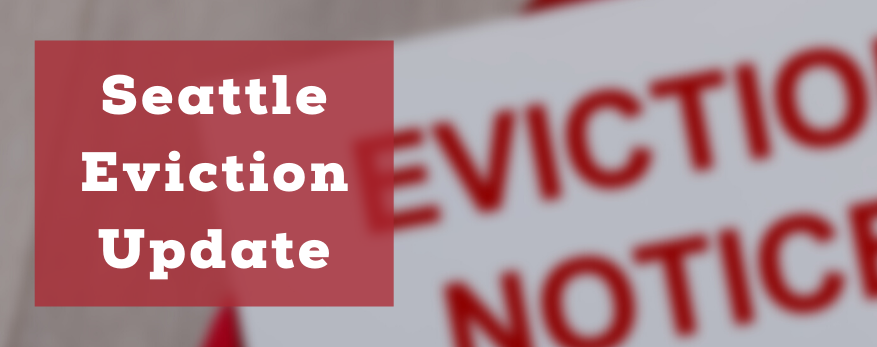
Wait! That’s Mine: Getting Stuff Back with Replevin
By Barbara Engstrom and Stephen Seely
For attorneys, replevin is likely not a question that comes across their desks very often. At county law libraries however, “How do I get my stuff back?” is asked with regularity. In order to help our patrons wend their way through this process, our intrepid Outreach Services Attorney, Stephen Seely created a self-help replevin packet. In this column, Stephen and I chat about all things replevin.
BE: Stephen, I know that creating the replevin self-help packet was a very involved process. Could you explain a bit about what replevin is and what it remedies?
SS: Replevin is the process used to get personal property back. If my neighbor has taken my lawnmower and won’t return it, I can sue him to determine who the rightful owner of the lawnmower is and I can use the replevin process to ask the court to give me temporary possession of the lawnmower until the ownership is determined at end of the case. (Or, if certain conditions are met, I can be declared the owner and get permanent possession using an expedited default judgment that is part of the replevin statute.)
BE: Are replevin cases heard in district court or superior court? I know that pro se litigants always want to use the small claims process. Is there any path to replevin via small claims court?
SS: Replevin cases can be heard in either district or superior court. The value of the personal property will decide which court you’ll end up in. (In District Court the value of the demand cannot be more than $100,000. In Superior Court the value of the demand must be at least $300.) Replevin isn’t available in small claims court.
BE: I was curious about the types of property that are the subject of replevin actions. I did a quick skim of the Washington replevin caselaw on Westlaw. There was a surprisingly wide variety of subject matter in the replevin suits including a Ferrari, stock certificates, drilling equipment, furniture suites, and stolen goods held by a pawnbroker. Granted, these are all cases that have made it up to the appeals level and tend to be higher value items. What subject matter do you most commonly see in your day-to-day work?
SS: I don’t see replevin very often, but when I do it’s usually pets. People generally decide that the time, effort, and expense of replevin isn’t worth it to recover their more common belongings. But, people seem to be ready to crawl through broken glass to get their pet back. The typical scenario is a couple who have been dating and living together are splitting up, there’s a dispute about who owns the pet, and the person who doesn’t currently have the pet wants possession of it.
BE: Could you give a quick overview of the replevin process in King County? Looking through the packet, it appears that several bonds are required to move the suit forward. Can you explain how and when the bonds come into play?
SS: Sure. The plaintiff files a lawsuit to determine ownership and recover the property. Then the plaintiff requests a show cause hearing on the issue of replevin and attaches a declaration explaining why the plaintiff should have temporary possession of the property. The Ex Parte Commissioner will decide if a show cause hearing will be held and issue the order to show cause. The show cause hearing will be held before your assigned trial judge.
At the show cause hearing the defendant will have to explain why they should keep temporary possession the property. Then one of three things happens: (1) the defendant keeps temporary possession of the property; (2) the plaintiff gets temporary possession of the property; or (3) the plaintiff gets a default judgment and permanent possession of the property.
With option one, the defendant keeps temporary possession the property and the case carries on like normal.
With option two, the plaintiff gets temporary possession of the property but will need to pay two bonds:
- The first bond is called the replevin bond (a.k.a., a delivery bond). It’s claimable by the defendant if the plaintiff does not act promptly in concluding the case or the replevin was wrongfully requested. The court can waive this bond under certain circumstances listed in RCW 7.64.035(1).
- The second bond is the Sheriff indemnity bond. It’s claimable by the Sheriff if the defendant later sues the Sheriff’s Office. The court cannot waive this bond.
The plaintiff then works with the Sheriff’s Office to have them seize the property and return it to the plaintiff. Once the plaintiff has temporary possession of the property, they complete their case to prove they are the true owner and get permanent possession of the property.
With option three, the plaintiff can get a default judgment under certain circumstances listed in RCW 7.64.035(3). This option finds the plaintiff to be the true owner of the property, gives the plaintiff permanent possession, and allows the Sheriff to seize the property and return it to the plaintiff. All in one nice concise source of legal authority.
BE: How does the valuation component of replevin work? Is compensation for the loss of use of the property available?
SS: Valuation can be one of the trickiest parts of a replevin case. It is important because the ballpark value of the bonds can be up to double the value of the property. But it can be very tricky to establish a reasonable value for some items (such as pets or sentimental heirlooms). People might turn to wholesale values, animal breeders, or start digging through their receipts in an effort to set a value.
Yes, damages are available for loss of use. RCW 7.64.035(3) provides for “[the value of the property] if possession cannot be obtained, damages, court costs, reasonable attorneys’ fees, and costs of recovery.”
BE: I know that you did a really deep dive into the replevin process. Were there any cases that you found intriguing?
SS: Intriguing might not be the right word, but I got a good chuckle when a court in Westchester County, New York, determined that when valuing a dog “depreciation is no factor at all; manifestly, a good dog’s value increases rather than falls with age and training.”1 Even if you can’t teach an old dog new tricks, they’re still a fantastic return on investment.
BE: Any last bits of sage wisdom for an attorney embarking on a replevin action?
SS: Yes, watch out for the re-delivery bond. There’s an optional bond called a re-delivery bond. It’s paid by the defendant to offset the plaintiff’s replevin bond and it allows the defendant to keep temporary possession of the property. It’s claimable by the plaintiff if the plaintiff wins the case and the defendant doesn’t give back the property or pay out the damages awarded to the plaintiff. The defendant can post a re-delivery bond up until the time the Sheriff’s Office hands the property off to the plaintiff.
BE: Thanks for that tour of all things replevin Stephen!
If you have questions on replevin or any other legal research issues be sure to contact the law library. You can email us at services@kcll.org. To find out more about the replevin packet or any of the other packets available from the King County Law Library visit our website https://kcll.org/forms-main/.
1 Stettner v. Graubard, 82 Misc. 2d 132, 133, 368 N.Y.S.2d 683 (N.Y. Town Ct. 1975).



